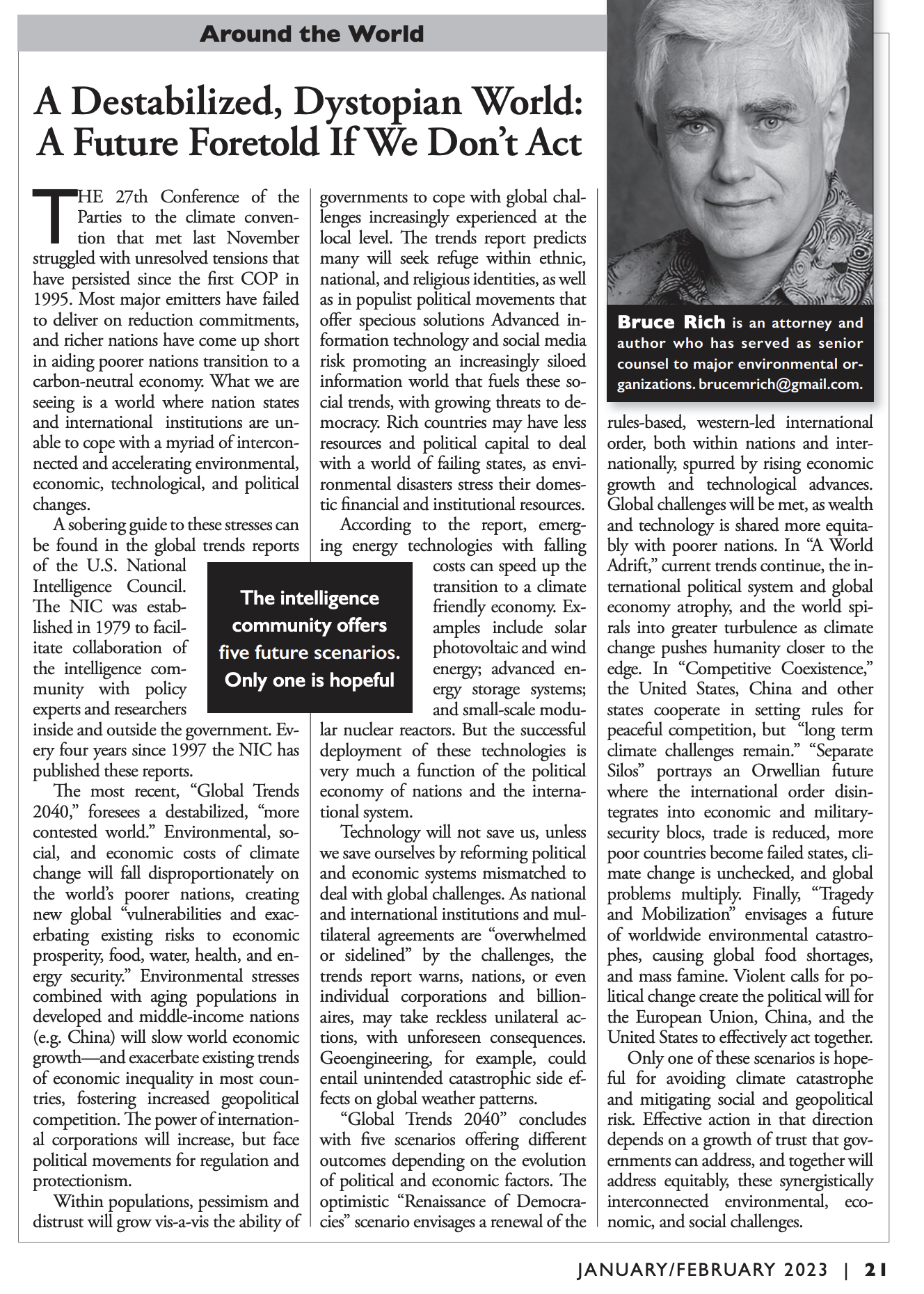- Bruce Rich
- Environmental Forum
- January/February 2023
- 21
Richer nations have come up short in aiding poorer nations transition to a carbon neutral economy. What we are seeing in the climate negotiations is a world where nation states and international institutions are increasingly unable to cope with a myriad of interconnected, accelerating environmental, economic, technological and political changes.
A sobering guide to these stresses can be found in the global trends reports of the U.S. National Intelligence Council. The NIC was established in 1979 to facilitate collaboration of the U.S. intelligence community with policy experts and researchers inside and outside the government. Every four years since 1997 the NIC has published Global Trends.
The most recent Global Trends 2040 foresees a destabilized, “more contested world.” Environmental, social and economic costs of climate change will fall disproportionately on the world’s poorer nations, creating new global “vulnerabilities and exacerbating existing risks to economic prosperity, food, water, health, and energy security.” Environmental stresses combined with aging populations in developed and middle-income nations (e.g. China…) will slow world economic growth, and exacerbate existing trends of growing economic inequality in most countries, fostering increased geopolitical competition. The power of international corporations will increase, but face political movements for regulation and protectionism.
Within populations pessimism and distrust will grow vis a vis the ability of governments to cope with global challenges increasingly experienced at the local level. Many will seek refuge within ethnic, national and religious identities, as well as in populist political movements that offer facile but specious solutions Advanced information technology and social media risk promoting an increasingly siloed information world that fuels these social trends, with growing threats to democracy. Rich countries may have less resources and political capital to deal with a world of failing states as growing environmental costs and disasters stress their own domestic financial and institutional resources.



